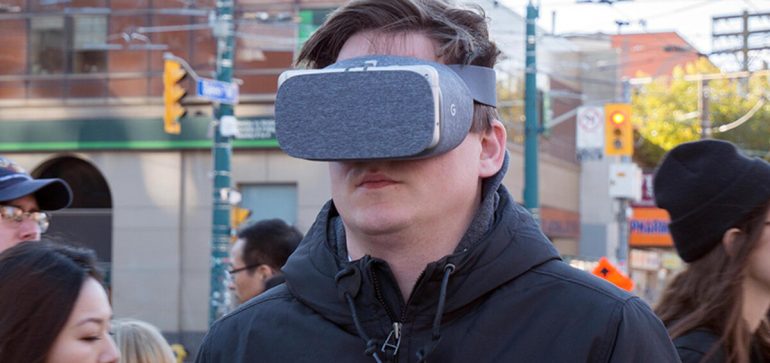University of Waterloo researchers may have found a way to predict motion sickness caused by virtual reality.
According to data collected from by researchers Séamus Weech, Jessy Paokaran and Michael Barnett-Cowan, how much someone sways in response to moving visuals correlates to sickness.
Researchers found that there was an inverse relationship between how much someone swayed and the degree of cybersickness (sickness caused by VR) they experienced.
“Despite decreased costs and significant benefits offered by VR, a large number of users are unable to use the technology for more than a brief period because it can make them feel sick,” said Weech, a postdoctoral research fellow at the Department of Kinesiology and lead author of the paper.
“Our results show that this is partly due to differences in how individuals use vision to control their balance. By refining our predictive model, we will be able to rapidly assess an individual’s tolerance for virtual reality and tailor their experience accordingly.”
The researchers conducted the study on 30 healthy participants aged 18 to 30. They collected several sensorimotor measures such as balance control, vection responses, and vestibular sensitivity to self-motion. Vection refers to the sensation of moving that comes from entirely visual stimulation. Vestibular refers to the inner ear, which helps control balance and eye movements.
Following those tests, the researchers tested each participant’s cybersickness after exposure to VR. Finally, the researchers were able to develop a model that significantly predicted how much cybersickness participants experienced after exposure to VR.
“Knowing who might suffer from cybersickness, and why, allows us to develop targeted interventions to help reduce, or even prevent, the onset of symptoms,” said Michael Barnett-Cowan, neuroscience professor in the Department of Kinesiology and senior author of the paper.
This is excellent news for anyone looking to get into VR. The tech is used in several applications, like education and gaming. Facebook’s Oculus just announced a new all-in-one VR system called the Oculus Quest, making the tech more accessible than ever.
A way to predict vulnerability to cybersickness coupled with a method to prevent it could potentially help many VR users.
This article was originally published on MobileSyrup.


